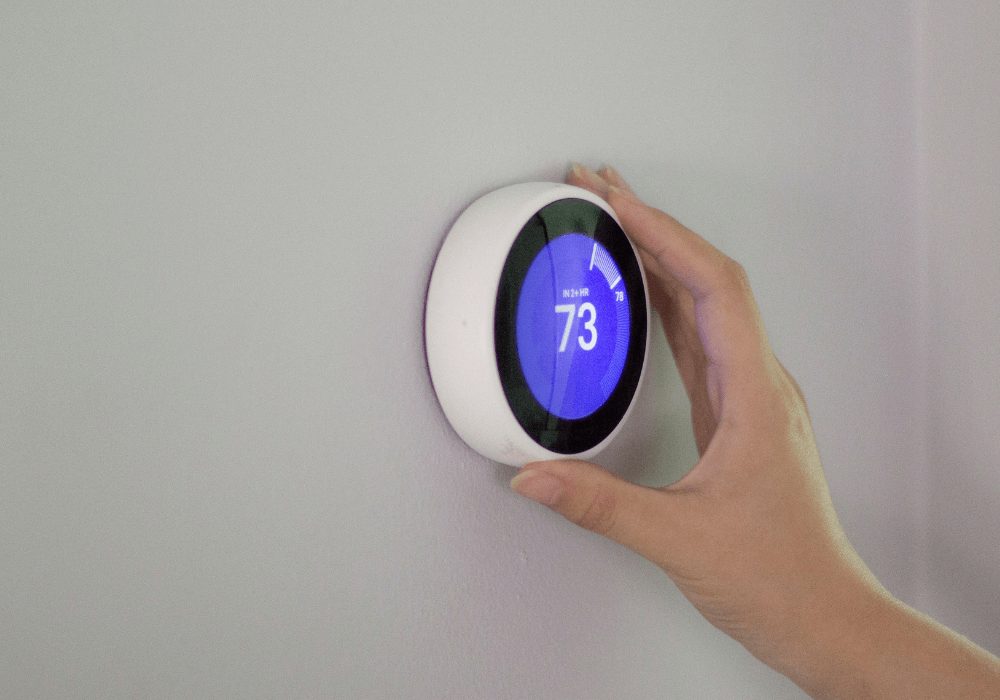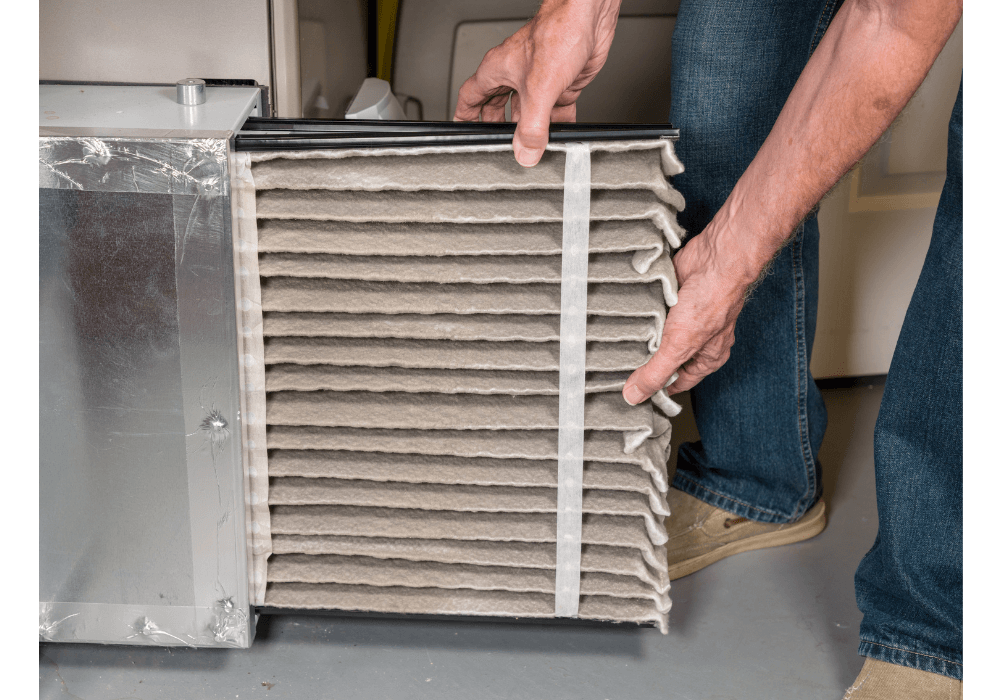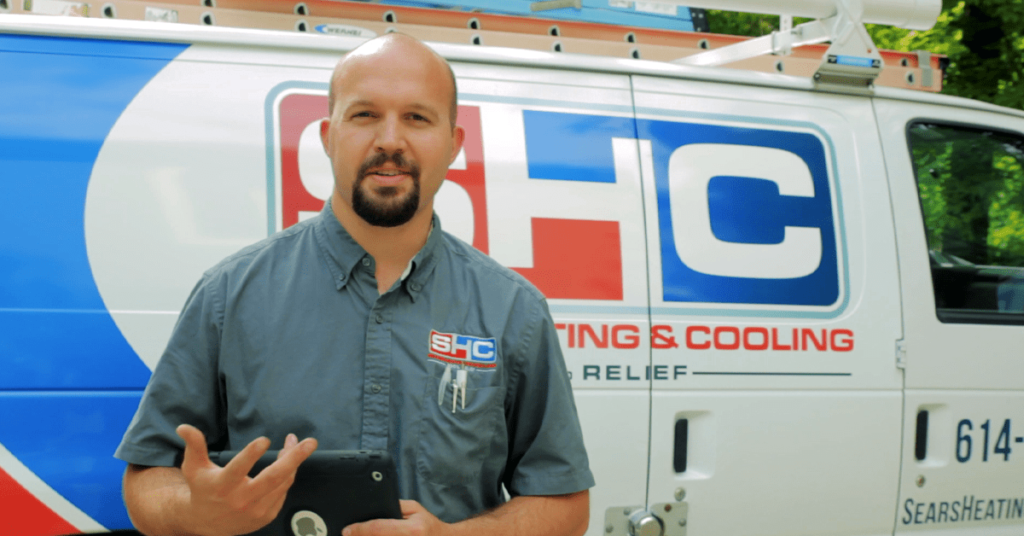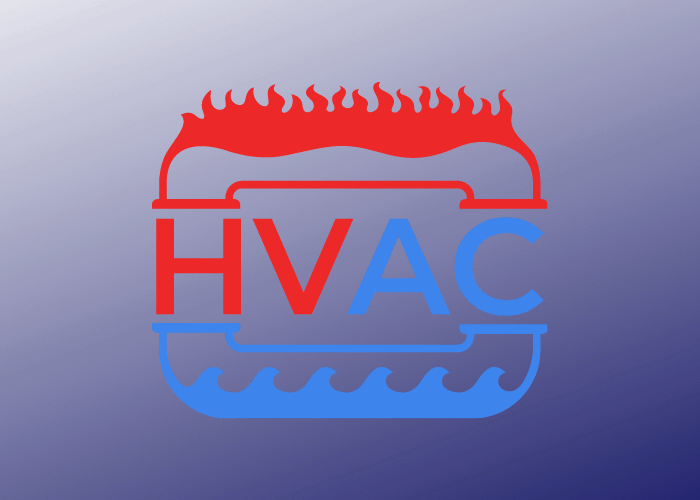How Does an HVAC System Work?
By My Service Depot on Friday, October 7, 2022A 10,000 foot overview of an HVAC system, including essential parts and mechanics of different systems. Learn tips on how to size, install, and maintain them.
What is HVAC
HVAC is an acronym for Heating, Ventilation, and Air Conditioning. Simply put, it covers all aspects of temperature control in a building. Heating systems are responsible for keeping the interior of a structure warm, while ventilation systems ensure that the air inside is fresh and circulating properly. Air conditioning systems work to cool the air and remove humidity. In many cases, all three systems are combined into a single unit known as a heat pump.
HVAC systems are essential for providing a comfortable indoor environment, and they can also play a role in energy efficiency. When installed correctly, they can properly regulate temperature and air quality, reducing the overall cost of heating and cooling a building. As a result, they have become an essential part of modern construction.
An HVAC system is a complex piece of machinery, and it requires regular maintenance to ensure that it runs efficiently. When properly maintained, an HVAC system can provide years of comfort and cost savings.
What an HVAC System Does For Your Home

Your HVAC system is one of the most essential systems in your house. Not only does it keep you comfortable in extreme weather conditions, but it also protects your family from air-borne diseases and allergens. Here’s a closer look at what HVAC does for your house:
1. Maintains a comfortable temperature – No matter what the weather is like outside, your HVAC system will keep the inside of your house at a comfortable temperature. This is especially important in the summer when temperatures can reach dangerous levels or when winter becomes bitter cold.
2. Cleans and filters the air – The air inside your house is circulated through the HVAC system where it is cleaned and filtered. This helps to remove allergens, dust, and other pollutants that can cause respiratory problems.
3. Reduces humidity levels – High humidity levels can lead to mold and mildew growth, as well as condensation on walls and windows. Your HVAC system helps to reduce humidity levels, making your home more comfortable and preventing damage to your walls and possessions.
4. Improves indoor air quality – In addition to cleaning and filtering the air, the HVAC system also circulates fresh air from outside. This helps to improve indoor air quality and keep your family healthy.
5. Saves energy – A well-maintained HVAC system runs more efficiently than an older or poorly-maintained system. This can save you money on your energy bill each month.
Your HVAC system is essential for maintaining a comfortable, healthy home, and HVAC systems are designed to last for many years. Still, they require regular maintenance to keep them running smoothly.
That’s why it’s important to have a professional HVAC technician service your system regularly. They will clean and inspect all of the components of your system to make sure they’re working properly and make any necessary repairs or adjustments. This will help prolong the life of your system and keep your home comfortable for years to come.
Parts of an HVAC system
An HVAC system is a complex machine that is used to regulate temperature and air quality in a home or office and contains multiple different parts and components.
Main System Parts
On the outside, the system is composed of three main parts: the furnace, the air conditioner, and the ductwork.
- The furnace is responsible for heating the air. The air conditioner’s job is to cool the air. They work together to make sure the temperature in the house is comfortable.
- The ductwork is responsible for distributing heated or cooled air throughout the house. Without it, we would be left feeling uncomfortable and our homes would be much less efficient.
Main System Parts Broken Down
Looking more in-depth, the furnace and air conditioner are composed of four additional parts: a compressor, a condenser, an evaporator, and an expansion valve.
- The compressor and condenser work together to cool the air. The compressor pressurizes the refrigerant and the condenser releases it. As the refrigerant passes through the condenser, it absorbs heat from the air, cooling it in the process.
- The evaporator starts the process by heating the refrigerant. The expansion valve then takes over and helps to complete the process. Together, they work to heat the system.
Other Essential Parts of an HVAC System
- Vents: Vents are installed in homes and buildings to allow heating, cooling, and ventilation systems to function properly and to improve indoor air quality. There are many different types of vents, including floor vents, wall vents, and ceiling vents. The type of vent you need will depend on the type of HVAC system you have.
- Refrigerant Lines: These lines transport refrigerants between the various components of the system, including the evaporator, compressor, and condenser.
- Exhaust Outlets: Exhaust outlets are used to expel air and fumes from homes and buildings. They are typically located near the roof or in the attic.
- Air return: An air return is a duct or opening that allows air to be drawn into the HVAC system.
- Filters: Filters are used to remove contaminants from the air that is circulated by the HVAC system. There are many different types of filters available, including HEPA filters and activated carbon filters.
- Humidity control products: Used to regulate the level of humidity in a home or building. These products can be used to prevent mold growth and to improve indoor air quality.
- Electrical components: The electrical components of an HVAC system include thermostats, sensors, switches, and circuit breakers. These components help control the temperature and humidity levels in a home or building.
Thermostat

The Thermostat of an HVAC system is an energy-efficient way to heat and cool your home. It is responsible for regulating the temperature of your home and ensuring that your family is comfortable.
There are a variety of thermostats on the market, and each has its unique features. For example, some thermostats have built-in WiFi, allowing you to control the temperature of your home from anywhere in the world. Others have programmable features, so you can set the temperature to automatically adjust throughout the day, or some can be programmed to turn on and off at specific times. This means that you can save money on your energy bill, as well as reduce your carbon footprint. A thermostat is also very easy to install, and it comes with a wide range of features that make it user-friendly.
By understanding how these parts work together, you can ensure that your HVAC system is always working at its best. To function properly, an HVAC system must have all of these components working together in harmony. For example, if the furnace is not working properly, the air conditioner will not be able to adequately cool the house. Similarly, if the ductwork is blocked or damaged, the conditioned air will not be able to reach all of the rooms in the house.
When shopping for an HVAC system, it is important to consult with a professional to find the best option for your specific needs.
HVAC Inside/Outside the Home
Most people are familiar with HVAC systems that regulate temperature, humidity, and air quality inside homes and office buildings. However, HVAC systems are also used in a variety of other settings, including cars, airplanes, and even outdoor arenas.
Portable HVAC units can be used to cool tents or outdoor events, and larger units can be installed to provide year-round comfort in outdoor spaces like patios and decks. By installing an HVAC system, property owners can create an enjoyable space that can be used year-round, regardless of the weather conditions. Not only does this make the property more valuable, but it also provides a comfortable place for family and friends to gather. So whether you’re inside or outside the home, an HVAC system can help to create a comfortable environment.
In addition, HVAC systems are used in a variety of industrial settings, such as factories and warehouses. By regulating temperature and humidity levels, HVAC systems help to create a safe and comfortable working environment for employees.
Types of Systems
When it comes to choosing the right HVAC system for your home, there are several different types of heating and air conditioning systems on the market today, each with its advantages.
- The split system has an outdoor unit that houses the compressor and condenser, and an indoor unit where the evaporator coil is located. They are a popular choice for many homeowners because they are relatively affordable and easy to install.
- The duct-free split system doesn’t use ductwork and instead relies on air handlers to deliver conditioned air directly into the space. No ductwork can save you money on installation costs.
- Zoned systems are ideal for homes with multiple levels or rooms that are used differently throughout the day, as they allow you to control the temperature in different areas of your home independently, which can be helpful if you have a large home or if you want to save energy.
- Humidity control systems help to remove excess moisture from the air, making your home more comfortable year-round. Humidity control systems are an important consideration for many homeowners, especially those who live in humid climates.
Sizing
The size of your HVAC system will be based on several factors, including the size of your home, the climate you live in, and your family’s comfort needs. Make sure to choose an HVAC system that’s sized appropriately for your home. If you get a system that’s too small, it won’t be able to effectively heat or cool your home. But if you get one that’s too big, it will waste energy which also equates to higher bills. An oversized unit may also push too much heating or cooling into the home, leaving conditions feeling uncomfortable. The best way to determine the right size is to have a professional come out and take a look at your home.
Installation
Installation costs of these systems can be significant, some more than others. With so many options on the market, it’s important to do your research before making a purchase. If you decide to DIY the installation, working with a professional installer can at least help you determine the best system for your needs.
Common HVAC rating and certifications
The topic of HVAC can be daunting to a homeowner. What do all those ratings and certifications mean? Here is a quick guide to common ratings and certifications you might see when shopping for an HVAC system.
- AHRI: The Air-Conditioning, Heating, and Refrigeration Institute test and certifies refrigerant, heating, and air-conditioning products.
- AFUE: Annual Fuel Utilization Efficiency is a measure of how much fuel your furnace converts to heat energy. The higher the AFUE rating, the more efficient the furnace.
- EER: Energy Efficiency Ratio is a measure of how much cooling your air conditioner produces for the amount of energy it uses. The higher the EER rating, the more efficient the air conditioner.
- SEER & HSPF: Seasonal Energy Efficiency Ratio & Heating Seasonal Performance Factor are measures of heating and cooling efficiency for heat pumps.
- MERV rating: Minimum Efficiency Reporting Value is a measure of how well an air filter captures particles in the air.
- NATE certification: Technicians who are certified by NATE (North American Technician Excellence) have passed a rigorous test administered by an independent organization.
- NAECA: The National Appliance Energy Conservation Act sets minimum energy efficiency standards for residential HVAC equipment.
To ensure that your HVAC system meets these standards, look for the ENERGY STAR label. Systems that meet or exceed ENERGY STAR standards can help you save money on your energy bills and reduce your carbon footprint.
How to Clean Your HVAC System

Regular maintenance and cleaning of your HVAC system are important to keep it running smoothly and efficiently. Dust, dirt, and other debris can build up in the system, causing it to work harder and use more energy. Here are some tips for cleaning your HVAC system:
- First, remove any debris from the exterior of the unit, such as leaves or dirt.
- Next, turn off the power to the system. This will prevent you from shocking yourself or damaging the system.
- Then, remove all the air filters and wash them in warm, soapy water. Rinse them thoroughly and allow them to dry completely before putting them back in place. If this seems vague, check out our other blog on changing an HVAC system filter.
- Use a soft brush or vacuum attachment to remove any dust or debris from the coils and other parts of the system. Be careful not to damage any delicate components.
- Finally, replace all the covers and turn the power back on. Test the system to make sure it is working properly.
By taking these simple steps, you can help ensure that your HVAC system is running efficiently and effectively all season long!
Who Can Best Service Your HVAC Equipment

When you need HVAC service, it is important to choose a company that can provide the best possible results. There are many factors to consider when choosing an HVAC service company, including experience, expertise, and customer service. With so many options available, how can you make sure you choose the right company?
One of the most important factors to consider is experience. Make sure the company you choose has been in business for several years and has a team of experienced technicians. They should also be familiar with a variety of HVAC systems and be able to provide service for all types of equipment. Additionally, they should be up-to-date on the latest advances in HVAC technology and be able to provide recommendations on energy-saving strategies.
Another important factor is expertise. The technicians at the HVAC service company you choose should be highly trained and knowledgeable about a variety of HVAC systems. They should also be able to troubleshoot problems quickly and efficiently. In addition, they should be able to offer advice on routine maintenance tasks that will help keep your equipment running smoothly. Don’t forget to make sure that the company you choose are properly certified and insured!
Finally, customer service is essential when choosing an HVAC service company. The company you select should offer friendly and helpful customer service representatives who are willing to answer any questions you have. They should also be available to help schedule appointments and provide follow-up support after the completion of your project.
By considering these factors, you can be sure you choose a company that will provide the best possible results for your HVAC needs.
What Smart Service Can Do For Your HVAC Company

Running an HVAC company is no easy feat. From managing technicians to keeping customers happy, there’s a lot to juggle daily. That’s where Smart Service comes in. Our Scheduling Software is designed to make your life easier by giving you the tools you need to streamline your operations.
With our software, you can easily schedule appointments, dispatch technicians, and track customer information. We also offer a robust customer portal that gives your customers the ability to view their account history, pay their invoices online, and even schedule appointments directly with your company. Best of all, our software integrates with QuickBooks, so you can keep all of your financial information in one place.
If you’re looking for a way to make your HVAC company run more smoothly, Smart Service is the answer. Stay competitive in this fast growing industry and contact us today to learn more about what we can do for you!
Conclusion
In this blog post, we’ve outlined what HVAC systems are, what they do for your home, the different parts of an HVAC system, and how they work. We’ve also discussed common ratings and certifications as well as ways to keep your HVAC system clean.
If you have any questions about your specific system or need service, be sure to reach out to a qualified technician. And if your HVAC service company needs better scheduling service, Smart Service is your answer, so reach out for a free demo today. You can also visit the Smart Service Hub to find all things Smart Service. Thanks for reading!


